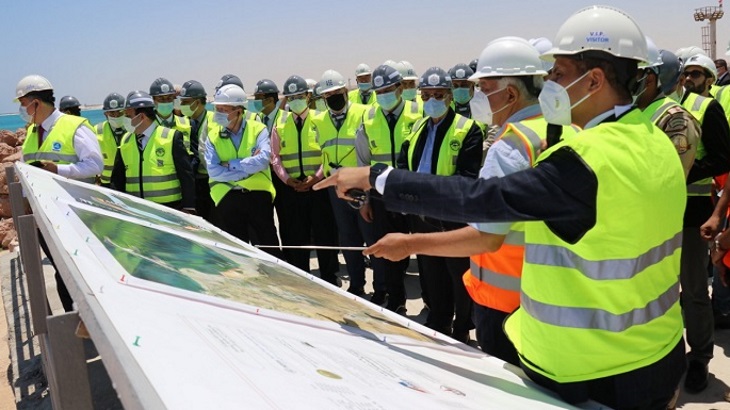The delegation also included: Alexander Lokshin, Rosatom's first deputy director general and president of JSC ASE; Gennady Sakharov, Rosatom's director of capital investments, state construction supervision and state expertise; Amged El-Wakeel, chairman of the NPPA; Ahmed Kuchuk, deputy minister of finance of Egypt; as well as officials from the Nuclear and Radiation Control Department of Egypt, Egyptian Electric Power Holding Company, the Egyptian Atomic Energy Authority, and the engineering division of the Egyptian Armed Forces.
"The teams are working as a single unit, setting ambitious goals and making every effort to achieve them," Likhachov said. "Such coordinated work culminated in perhaps the most important event in the current stage of the project with our handover to the regulator at the end of June of the entire package of documentation necessary to obtain permission for the construction of the first two power units," he added.
"We have observed the positive dynamics in the implementation of the project," Shaker said. "Of course, the systematic approach to the Egyptian nuclear dream is taking place with the full support of the political leadership of Egypt. No matter how complex the challenges we face, the Egyptian-Russian team of professionals will be able to successfully cope with them."
Lokshin described the visit as "productive and intense" and "it was possible to check the clock with our Egyptian partners and outline the further steps towards the implementation of the tasks set".
El-Wakeel said construction of the nuclear power plant will stimulate further economic development of the country, help it play its part in the United Nations Sustainable Development Goals, and provide an incentive to increase the industrial and tourism potential of Egypt in general and the province of Matrouh, in particular.
As well as visiting the construction site, the delegation also inspected the port facilities that are planned to be used to transport heavy equipment for the reactor units. The Rosatom officials also assessed the development of the "social infrastructure" necessary to support the project.
The El Dabaa nuclear power plant project is based on contracts that entered into force on 11 December 2017. These stipulate that Rosatom will not only build the plant, but will also supply Russian nuclear fuel for its entire life cycle. They will also assist Egyptian partners in training personnel and plant maintenance for the first 10 years of its operation. Rosatom is also contracted to build a special storage facility and supply containers for storing used nuclear fuel.





_87299.jpg)
_52351.jpg)








